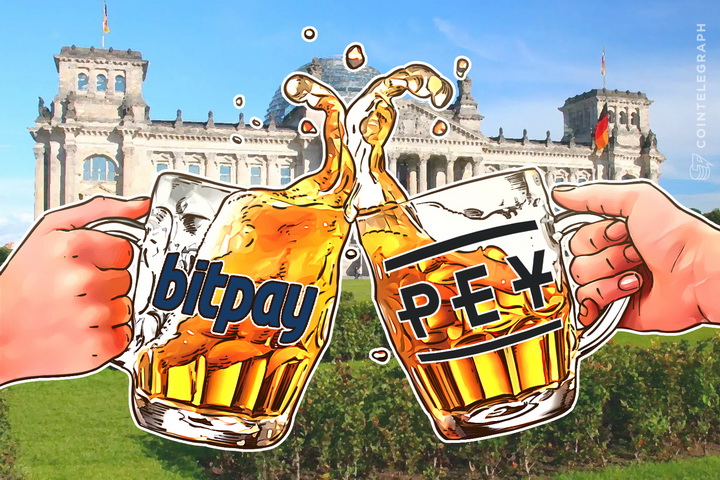Payroll in Bitcoin has just reached Germany, with payment processors BitPay and PEY partnering to allow Germans to make their living in cryptocurrency.
Last week, Bitcoin payment processor BitPay announced that they had begun a new partnership with PEY, a German Bitcoin payments venture. The Hanover-based company broke the announcement on their site as well, joining Canadian gaming company OPSkins and American human resources company Zuman in using BitPay’s Bitcoin payroll API.
Salary to be paid in cryptocurrency
PEY will be debuting Bitcoin payroll with t3n, a technology publication, after which they plan to expand through Europe and offer payroll services to companies outside of Germany. T3n recently announced their decision to allow their employees to receive their salary in cryptocurrency. Additionally, they are offering employees a bonus of up to 44 Euros tax-free.
t3n says in a blog post:
“One motivation to implement the new form of salary payment, of course, is in our editorial related interest in new technologies and their adaptation by users in everyday life.”
Transaction and tax advantages
Using Bitcoin for payroll offers several key advantages over traditional bank services, including much faster confirmations, ease of international transfers, and a significant reduction in transaction fees. Additionally, Bitcoin has so far not been considered legal tender in Germany, as such it is tax-exempt, allowing employees who earn cryptocurrency to keep more of what they earn (as evidenced by t3n’s tax-free bonus offer).
Corey Glaze, Sr. Sales Engineer at BitPay, explains in a blog post:
“Bitcoin offers a significant improvement over other methods for business payroll payments and payouts. Since transactions confirm in minutes and can be transmitted more securely than other online payments, businesses can use bitcoin to make both local and international payments faster and more affordably than through bank transfers.”
Germany poised for Bitcoin to flourish
Bitcoin has been allowed to flourish in Europe, as governments have been hesitant to impose regulations, the general European Union consensus being that cryptocurrency has a self-regulating element. Adoption maps of Bitcoin-accepting businesses and BTMs show heavy concentration in central Europe, with particular development found in the Netherlands, Switzerland, and the Czech Republic.
While Germany currently lags a bit behind, developments such as BitPay’s partnership with PEY can help reverse this trend.


